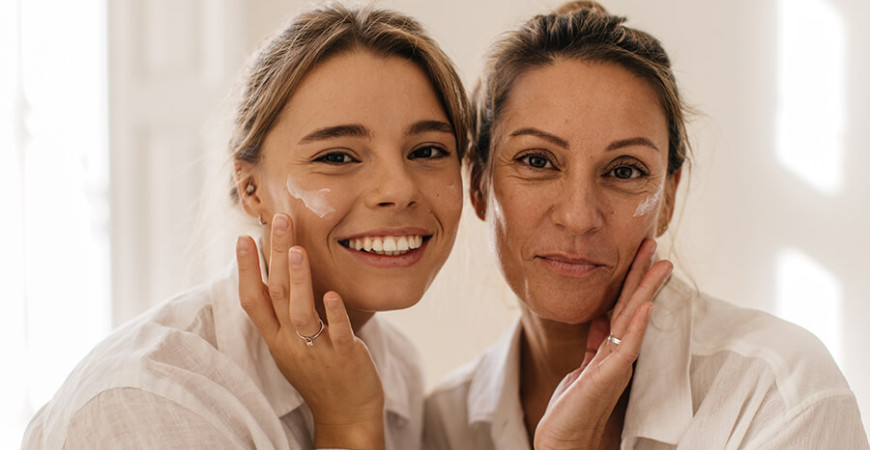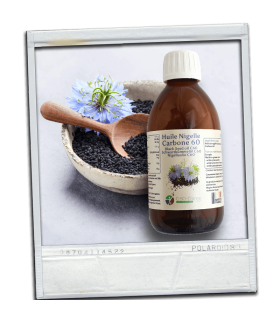Ultimate Guide to Anti-Aging Serums: Unlocking the Secrets of Youthful Skin
Summary of the article:
| Key Point | Details |
|---|---|
| Introduction: Quest for Timeless Beauty | The pursuit of beauty has led many to anti-aging serums, which are concentrated and rejuvenating. |
| Composition of Anti-Aging Serums | Serums are lightweight liquids delivering active ingredients. They target specific skin concerns. |
| Power Ingredients in Anti-Aging Serum | Ingredients like Vitamin C, hyaluronic acid, and peptides play crucial roles in skin rejuvenation. |
| Science of Skin Rejuvenation | Serums work at a cellular level, promoting collagen synthesis and combating free radicals. |
| Choosing the Right Serum | It's essential to pick a serum based on individual skin needs and concerns. |
| Application Techniques | Proper application ensures maximum absorption and effectiveness of the serum. |
| Safety and Precautions | Always read labels, conduct patch tests, and be cautious about mixing active ingredients. |
Introduction: The Quest for Timeless Beauty
The pursuit of timeless beauty has been a constant throughout human history. From ancient civilizations to modern times, people have sought ways to maintain a youthful appearance and combat the signs of aging. In today’s world, where beauty standards and skincare routines have evolved, the quest for the fountain of youth has led many to the doors of vitamin C serum and other potent formulations.
"Beauty is eternity gazing at itself in a mirror." - Khalil Gibran
With the rise of the skincare industry, there’s been a surge in products claiming to reverse the hands of time. But among these, anti-aging serums have emerged as a favorite. Why? Because they’re concentrated, potent, and packed with ingredients that promise to rejuvenate the skin. But what exactly are these serums, and how do they work?
What Are Anti-Aging Serums? A Deep Dive into Their Composition
At its core, a serum is a lightweight, fast-absorbing liquid that delivers a high concentration of active ingredients deep into the skin. Think of it as a magic potion, but for your skin. The term "serum what is" often pops up in skincare forums, and the answer is simple: it’s a skincare product designed to deliver high concentrations of specific active ingredients to the skin.
There are many types of serums, including hyaluronic acid serum, best vitamin C serum for face, and best C serum for face. Each type targets specific skin concerns, from hydration to anti-aging. But what makes anti-aging serums stand out is their unique blend of ingredients tailored to combat the signs of aging.
"The best foundation you can wear is glowing healthy skin." - Unknown
One popular ingredient in these serums is vitamin a and c serum. Vitamin A, often in the form of retinoids, is known for its ability to accelerate skin cell turnover. On the other hand, Vitamin C is an antioxidant that fights free radicals and boosts collagen production, leading to firmer, brighter skin. Another sought-after ingredient is serum vitamin C serum, a potent form of Vitamin C that promises to deliver all the benefits of this vitamin in a more concentrated form.
The Power Ingredients: Key Components of Effective Anti-Aging Serum
When it comes to anti-aging serums, the magic lies in their ingredients. These power-packed formulations are often loaded with a mix of vitamins, antioxidants, peptides, and other skin-loving ingredients. One of the most popular and effective ingredients in these serums is Vitamin C. Known for its antioxidant properties, vitamin C for skin whitening not only brightens the skin but also combats signs of aging by boosting collagen production.
"Beautiful skin requires commitment, not a miracle." - Erno Laszlo
Another star ingredient is hyaluronic acid. This molecule can hold up to 1000 times its weight in water, making hyaluronic acid serum a hydration powerhouse. It plumps up the skin, reducing the appearance of fine lines and wrinkles.
For those dealing with pigmentation issues, the best serum for dark spots and pigmentation often contains ingredients like niacinamide and licorice root extract. These ingredients work to even out skin tone and reduce the appearance of dark spots.
In the realm of anti-aging, peptides are also game-changers. These short chains of amino acids signal the skin to produce more collagen, leading to firmer, more youthful-looking skin.
How Anti-Aging Serums Work: The Science of Skin Rejuvenation
The skin is our body’s largest organ, and it’s constantly exposed to environmental stressors like UV rays, pollution, and free radicals. Over time, these stressors can lead to premature aging, manifesting as wrinkles, fine lines, and uneven skin tone. Enter anti-aging serums. But how do they work their magic?
At a cellular level, these serums deliver potent ingredients that stimulate the skin’s natural repair processes. For instance, when you apply a serum containing vitamin C serum, it penetrates the skin’s outer layer and promotes collagen synthesis. Collagen is the protein responsible for skin’s elasticity and firmness. As we age, its production naturally decreases, leading to sagging skin and wrinkles.
"Skincare is about enhancing the beauty you already have." - Caroline Hirons
Another mechanism at play is hydration. Ingredients like hyaluronic acid pull moisture from the air and lock it into the skin. This not only hydrates but also plumps up the skin, reducing the appearance of fine lines.
Moreover, anti-aging serums packed with antioxidants combat free radicals – unstable molecules that damage skin cells. By neutralizing these free radicals, serums prevent oxidative stress, a significant contributor to premature aging.
Choosing the Right Serum: Tips for Every Skin Type and Concern
With a plethora of serums available in the market, choosing the right one can be daunting. Whether it’s the top vitamin C serum for face or the best C serum for face, it’s essential to pick one tailored to your skin’s needs.
For those with dry skin, serums containing hyaluronic acid or ceramides can provide the much-needed hydration. If you’re battling redness, an anti redness serum with ingredients like niacinamide or aloe vera can soothe and calm the skin.
For individuals aiming for a brighter complexion, vitamin C for skin whitening serums can be a game-changer. These serums not only brighten but also even out skin tone, giving a radiant glow.
"Invest in your skin. It’s going to represent you for a long time." - Linden Tyler
If pigmentation or dark spots are your primary concern, look for serums containing alpha hydroxy acids (AHAs) or retinol. These ingredients exfoliate the skin, promoting cell turnover and reducing the appearance of dark spots.
Lastly, always consider your skin’s sensitivity. If you have sensitive skin, opt for serums free from fragrances and essential oils. And always, always patch-test before applying any new product to your face.
Application Techniques: Maximizing the Benefits of Your Fortuna Serum
The way you apply your serum can make a world of difference. Start with a cleansed face. This ensures that the serum can penetrate deeply without any barriers like dirt or makeup. Apply a few drops of the serum to your fingertips, then gently pat and press it into your skin. This technique ensures maximum absorption.
For those using multiple serums or skin care C products, the general rule is to go from the thinnest to the thickest consistency. So, apply your watery serums first, followed by thicker ones, and seal everything with a moisturizer.
"The best foundation is radiant, healthy skin." - Unknown
Remember, consistency is key. To see visible results, use your serum regularly, preferably twice a day. And always follow up with sunscreen in the morning, as some serums can make your skin more sensitive to the sun.
Safety and Precautions: Ensuring the Best Results for Your Skin
While anti-aging serums promise a plethora of benefits, it’s crucial to approach them with a safety-first mindset. After all, the skin is a delicate organ, and what works wonders for one person might not be suitable for another.
First and foremost, always read the label. Familiarize yourself with the ingredients, especially if you have known allergies or sensitivities. For instance, while vitamin A and C serum can be transformative for many, some might experience irritation or redness.
"Your skin is a telltale indicator of how good you feel." - Danielle LaPorte
Next, always conduct a patch test, especially when introducing a new product into your regimen. Apply a small amount of the serum to a discreet area, like the inside of your wrist or behind the ear, and wait for 24 hours. If there’s no reaction, you’re good to go. If you notice any redness, itching, or burning, it’s best to discontinue use and consult a dermatologist.
Another essential precaution is to be wary of mixing active ingredients. For instance, combining retinol with vitamin C serum can render both ingredients ineffective and might even irritate the skin. If you’re unsure about product combinations, it’s always a good idea to consult with a skincare professional.
"Beautiful skin begins with exceptional skincare." - Unknown
Furthermore, while serum vitamin C and other anti-aging serums can work wonders, they can also increase the skin’s sensitivity to the sun. Always follow up with a broad-spectrum sunscreen, even on cloudy days. This not only protects your skin from harmful UV rays but also ensures that the serum’s benefits aren’t negated by sun damage.
Our Fortuna Serum has vitamin C ingredient and other anti-oxydants, to limit the risk with only vitamin c formulas. It's the subtle combination of all ingredients, all working together, that will give you the results you expect.
Lastly, remember that less is more. Serums are concentrated, and a few drops are often enough to cover the entire face. Over-applying won’t necessarily yield better results and might even lead to product wastage or potential skin issues.
With these safety precautions in mind, you’re well-equipped to make the most of your anti-aging serums. These potent elixirs, when chosen and used correctly, can truly be the key to unlocking youthful, radiant skin. As with all skincare, patience and consistency are vital. Give your products time to work, listen to your skin, and soon, you’ll see the transformative power of these serums come to life.
Frequently Asked Questions
Q1: What are anti-aging serums?
A: Anti-aging serums are concentrated skincare products designed to deliver high concentrations of specific active ingredients to combat signs of aging.
Q2: How do serums differ from other skincare products?
A: Serums are lightweight, fast-absorbing, and deliver a high concentration of active ingredients deep into the skin.
Q3: What are some key ingredients in anti-aging serums?
A: Common ingredients include Vitamin C, hyaluronic acid, peptides, niacinamide, and licorice root extract.
Q4: How do anti-aging serums work on the skin?
A: They stimulate the skin’s natural repair processes, promote collagen synthesis, and combat free radicals.
Q5: How should I choose the right serum for my skin?
A: Consider your skin type, concerns, and desired outcomes. For instance, those with dry skin might prefer serums with hyaluronic acid.
Q6: What is the correct way to apply a serum?
A: Start with a cleansed face, apply a few drops to your fingertips, then gently pat and press it into your skin.
Q7: Can I use multiple serums together?
A: Yes, but it's essential to layer them from the thinnest to the thickest consistency and be cautious about mixing active ingredients.
Q8: Are there any side effects of using anti-aging serums?
A: Some individuals might experience irritation or redness. It's always recommended to conduct a patch test before full application.
Q9: Why is sunscreen important after applying a serum?
A: Some serums can increase skin’s sensitivity to the sun, so sunscreen protects against harmful UV rays and potential sun damage.
Q10: How often should I use an anti-aging serum?
A: For best results, use your serum regularly, preferably twice a day.












